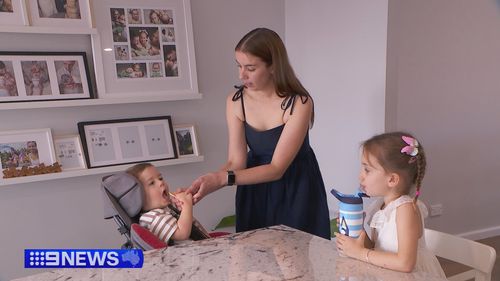Share this @internewscast.com
This neurological disorder depletes the body’s energy and leads to a gradual decline in mental and physical capabilities.
Like many parents of children with rare illnesses, mum Louise Gray was anxious to find the source of her baby’s symptoms.

But she said the family ran the gauntlet of medical question marks before the Brisbane toddler’s diagnosis.
That was until a revolutionary blood test which promises to rapidly diagnose thousands of rare diseases came to the family’s aid.
“There’s been 15 reported cases that we’re aware of around the world, and six of those cases are currently alive,” Mrs Gray said.
“It’s given us answers, which is what we didn’t have for so long.”

Ten years in the making, Melbourne researchers claim the development offers “one test to rule them all”.
“Rather than a gene-specific test, we can perform a single test that covers nearly half of the 7000 rare diseases,” explained Murdoch Children’s Research Institute professor David Thorburn.
“We anticipate that it will increase the diagnosis rate from genomic testing from approximately a third to half of all patients, to around 70 to 75 percent.”

For families like the Grays, it can also allow earlier access to treatment and eliminate the need for costly and invasive procedures.
“It gives them closure and an end to this question of why, what happened, was it something I did?” University of Melbourne associate professor Dr David Stroud said.
“It can also give the patients access to appropriate treatments and for many families can restore reproductive confidence, allowing them to have a healthy child.”













